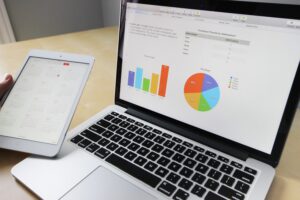Investing in commodities, like metals, energy sources, agricultural products, and livestock, can be an asset diversification technique, much like investing in equities or fixed income.
Table of Contents
ToggleWhat Is a Commodity Futures Contract?
A commodity futures contract is an obligation to buy or sell a predetermined quantity of a given commodity at a specific price at some point in the future. It is used by investors to hedge against risks associated with price movements of the underlying asset or to speculate on the direction of its price movement.
Commodity futures are different from options contracts, as they require the holder to act by either buying or selling an asset at the stated price before the expiration.
In contrast to spot commodities markets, which involve immediate delivery and payment for goods, commodity futures contracts are traded on exchanges, allowing investors to lock in prices for future delivery. This gives investors greater flexibility when managing their investments and will enable them to benefit from potential price changes without purchasing the underlying asset. In addition, by using commodity futures contracts, investors can protect themselves from losses due to unfavorable market conditions or take advantage of favorable market conditions without committing large amounts of capital upfront.
Why Choose Speculating with Commodity Futures Contracts for Investing?
Commodity futures contracts are great for investors wanting to speculate on the rate of the underlying asset. In commodities futures contracts, investors make directional price bets. Both bullish (buying) and bearish (selling) allocations can be taken concerning the commodity. Speculative trades in commodity futures tend to require a high amount of leverage so that the investor doesn’t have to provide the entire contract volume. Rather, part of the whole transaction amount must be placed with the broker overseeing their account. Depending on the commodity and broker, the necessary leverage varies.
How a Commodity Futures Contract Works
The most common type of commodity futures contract is the cash-settled contract, which is closed out or netted at its expiration date. This means that the difference between the original and closing trades is settled in cash.
Commodity futures are typically used to take a position in an underlying asset, such as crude oil, wheat, or other commodities. Investors can benefit from rising prices by taking a long position in an asset, and by taking a short position, they can benefit from falling prices. Commodity futures contracts are also used for hedging purposes to protect against price fluctuations in the underlying asset.
How to Trade Commodity Futures
It’s important to do your research before getting started. The first step is to choose an online commodity broker that fits your needs. Interactive Brokers is popular due to its wide selection of products, good service, and low commissions. Once you’ve chosen a broker, you’ll need to fill out the financial documentation required to open and fund an account.
Once you have an account set up, you can start trading commodity futures. Understanding the risks associated with trading commodities is important and developing a strategy that works for you. You should also familiarize yourself with the different types of contracts available and how they work. Finally, keep track of market news and trends so that you can make informed decisions when trading commodity futures.
Commodity Markets Center
- Grains
- Meats
- Softs
- Energies
FAQ
Why Do Commodity Brokers Use Forward and Futures Contracts?
Forward and futures contracts are an important tool for commodity brokers, as they allow them to manage the risk of fluctuating prices. By entering into a forward or futures contract, the broker can “lock in” a price for a certain asset at a predetermined date. This helps to ensure that the broker will not be exposed to any losses due to sudden changes in market prices.
How Do You Report Commodity Futures Gains and Losses on Your Taxes?
Use IRS Form 6781 to report gains and losses from commodity futures contracts on your taxes. This form reports all gains and losses from 1256 Contracts, including commodities and futures transactions. When filing this form, you must provide information such as the type of contract, the date of purchase or sale, the amount of gain or loss, and other relevant details. Additionally, you may need to file a Schedule D with your tax return if you have realized any capital gains or losses from your commodity futures trading activities.
What Is the Commodity Futures Modernization Act?
The Commodity Futures Modernization Act (CFMA) was signed into law in December 2000 and is a federal legislation that states that over-the-counter (OTC) derivatives would remain unregulated. This act was created to modernize the commodities market by allowing for more flexibility in trading and providing more options for investors. The CFMA also removed restrictions on certain types of derivatives, such as futures contracts, options, swaps, and other financial instruments. This allowed for greater commodity market innovation and opened up new opportunities for investors.



